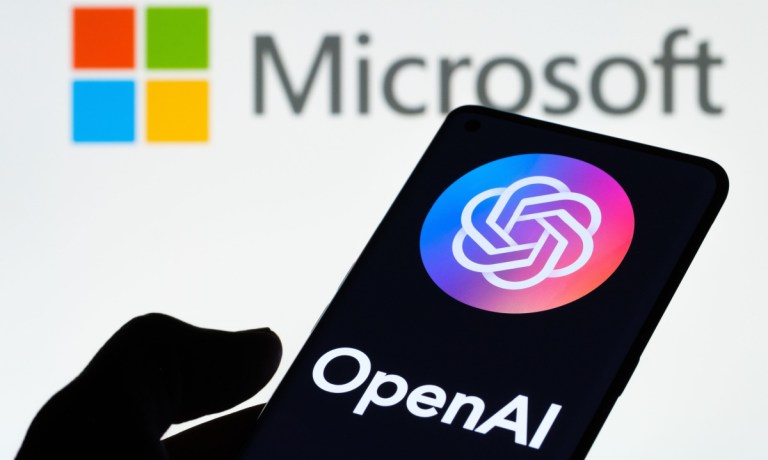Will Big Tech Capture the Opportunity From OpenAI’s Crisis?

After an extraordinary weekend, OpenAI has opened up the artificial intelligence (AI) playing field.
Just not in the way the non-profit had originally hoped when it was first founded in 2015.
If you haven’t been keeping track, the company ousted its well-known CEO Sam Altman, who was fired by the company’s board on Friday (Nov. 17) with little information given other than “no longer [having] confidence in his ability to continue leading OpenAI.”
The unexpected news sent shockwaves across the entire AI ecosystem, and factions within OpenAI spent the weekend backtracking and trying to bring Altman back — efforts that ultimately failed. Instead, the 38-year-old on Sunday (Nov. 19) was given a new CEO position at a soon-to-be-created Microsoft AI research division.
But many of the tech giants who found themselves flat-footed around this time last year by the rapid and popular success of OpenAI’s ChatGPT bot are likely to benefit from the weekend’s chaos.
That’s because, despite the naming of former Twitch CEO Emmett Shear as its third CEO in three days, OpenAI will likely take months to navigate the fallout of this weekend, creating a slowdown in the company’s ability to update its existing AI products and create new ones.
For AI players like Google, Amazon, Meta, Anthropic and others, that time represents a generous and invaluable runway for them to bring their own products to market and further fine-tune their own large language models (LLMs).
Read also: The Existential Threat That Microsoft Missed — and Could Put Its GenAI Future at Risk
Resetting the Power Dynamic
Adding to the turmoil, over 500 of OpenAI’s 770 employees have reportedly signed a letter saying they will leave the company if the company’s board does not resign and reinstate former CEO Sam Altman and former Co-founder and President Greg Brockman.
Among the letter’s signatories are Ilya Sutskever, OpenAI’s chief scientist and one of the members of the board who voted to oust Altman, as well as the company’s CTO and former interim CEO Mira Murati.
“OpenAI is nothing without its people,” Murati said in a post on X (formerly Twitter), as did countless OpenAI employees.
OpenAI is nothing without its people
— Mira Murati (@miramurati) November 20, 2023
And now, many of those people might be up for grabs in a brain drain that could reshape the competitive dynamics of the AI landscape.
“We look forward to getting to know Emmett Shear and OAI’s new leadership team and working with them. And we’re extremely excited to share the news that Sam Altman and Greg Brockman, together with colleagues, will be joining Microsoft to lead a new advanced AI research team,” Microsoft CEO Satya Nadella posted on X.
We remain committed to our partnership with OpenAI and have confidence in our product roadmap, our ability to continue to innovate with everything we announced at Microsoft Ignite, and in continuing to support our customers and partners. We look forward to getting to know Emmett…
— Satya Nadella (@satyanadella) November 20, 2023
But it is no guarantee that OpenAI’s talent, should they choose to depart, will follow Altman and Brockman to Microsoft — many may look for roles at other AI startups and incumbent giants.
After all, OpenAI built the single most recognizable consumer-grade AI product and helped kickstart the entire commercial AI space. Tech companies will be very interested in the engineers, researchers and staff that helped it do so.
Read also: What Does it Mean to be Good for Humanity? Don’t Ask OpenAI Right Now
The Growing Schism in AI
This year has seen a race to put AI tools into as many hands — both individual and enterprise — as possible, and the speed of AI’s advances as well as the acceleration of the tech’s deployment, has sparked a debate over the responsible development of AI.
It is also not the first time there has been a relatively pivotal divergence of opinion within OpenAI.
Well-funded AI startup Anthropic, which is focused on AI safety, was created after OpenAI’s former head of safety, Dario Amodei, left in 2020 with over a dozen researchers, reportedly due to disagreements about OpenAI’s mission after Microsoft’s initial $1 billion investment.
While Altman’s ouster at OpenAI may have the immediate effect of leveling the playing field within the AI ecosystem, it remains to be seen what the last 72-hour’s events hold for Microsoft, OpenAI’s largest investor and the single player most deeply ingrained into the nonprofit’s fate.
Microsoft reoriented its business around OpenAI’s AI software, and the disruption caused by the CEO overhaul will likely dampen the pace of innovation Microsoft can leverage — no matter the speed with which Altman’s new AI Research division can get going.
In the interim, the turmoil at OpenAI is also likely to cause the many companies beyond just Microsoft who also depend on OpenAI’s software to look elsewhere for LLMs on which to build their own products.
While the first-glance look showed that Microsoft came out of the power struggle with a win (and with Sam Altman), potentially reaching an all-time high on Monday after taking a dip on Friday’s news, the tech company has a long road ahead as it looks to manage both its newest star AI employees — Altman and Brockman — and its existing relationship with their former employer.
For all PYMNTS AI coverage, subscribe to the daily AI Newsletter.